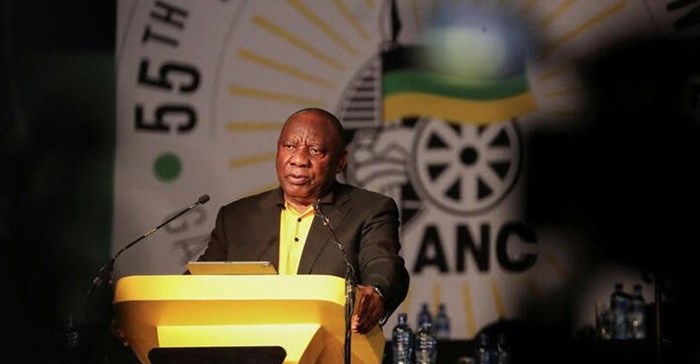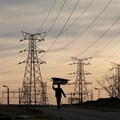President Cyril Ramaphosa's re-election as leader of South Africa's ruling party has strengthened his hold on power, but a core of vocal opponents in its new executive suggests the country's path to much-needed reforms will remain a rocky one.

Source: Reuters.
Ramaphosa secured re-election, paving the way for him to run for a second presidential term in 2024, on Monday in a ballot of African National Congress (ANC) members that also chose the party's new National Executive Committee (NEC).
That vote sidelined some ministers and others in an anti-Ramaphosa camp loosely connected with Jacob Zuma that, with the ex-president embroiled in battling corruption allegations that he denies, rallied around former health minister Zweli Mkhize.
"There's really an opportunity for (Ramaphosa)... to be ruthless here," said Shridaran Pillay, Africa director for Eurasia Group, a New York-based political consultancy. "People want to see him take decisive action."
The Daily Maverick, a national newspaper, estimated that fewer than 20 of the NEC's 80 new members are not Ramaphosa supporters, meaning it is unlikely to remove him from office.
But those 20 include Mkhize and other influential opponents, some tainted by corruption claims, and the president's own credibility as a corruption-buster has been weakened by an inquiry over possible misconduct linked to large sums of cash found at his farm. He denies wrongdoing.
On the flip side, senior figures in the new-look NEC include Energy Minister Gwede Mantashe as national chair, Fikile Mbalula as secretary-general, Maropene Ramokgopa as second deputy secretary-general and Gwen Ramokgopa as treasurer - all nominally strong Ramaphosa allies.
Trouble brewing
Since first being elected ANC president in 2017, Ramaphosa has laid out his reformist credentials in initiatives to shrink South Africa's bloated bureaucracy and boost electricity production amid broader efforts to clamp down on corruption.
But he has been hamstrung primarily by a combination of powerful unions and vested interests within the NEC.
He now faces a groundswell of scepticism from a jaded electorate furious about worsening public services - including a lack of municipal water, unrepaired roads, unprocessed sewerage and underfunded schools - often linked to the misuse of funds intended to fix them.
Late last year, the ANC suffered its worst election result ever in municipal polls, the first time its support has dropped below 50%.
David Richard Walwyn 19 Dec 2022 Within the new NEC, at least three members have been convicted of crimes including assault and perjury, while several prominent ones were named in a report into corruption during Zuma's nine years in office.
The latter include Nomvula Mokonyane, who the report said should be subject to criminal investigation, and Mantashe. Both deny wrongdoing.
"It's a nest of vipers," said Ebrahim Fakir of Auwal, a South African socio-economic research institute. "He could find it hard to push through stringent reforms (on corruption)."
Those wanting to make life hard for Ramaphosa will also be mindful of a track record that suggests a tendency to become paralysed into inaction by the wish to build consensus within the ANC.
"(Opponents) being vocal and willing to stand up to the president. That's what (has) made life so uncomfortable for him (in the past)," said Susan Booysen, director of research at the Mapungubwe Institute for Strategic Reflection.
One player who has come out well is Mantashe, an astute politician credited with helping Ramaphosa achieve his NEC gains.
That could spell trouble for South Africa's much-lauded transition to green energy, about which Mantashe, a former coal union boss, has made his doubts frequently known.
Fakir said Mantashe had sometimes obstructed reforms and, while the obvious solution was to appoint someone else as energy minister, but he was likely to object.
"Unless he's given something like deputy president, moving him out of that portfolio would jeopardise Ramaphosa's causes," Fakir said.




































